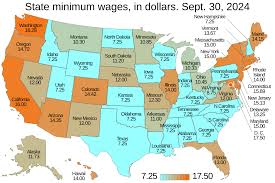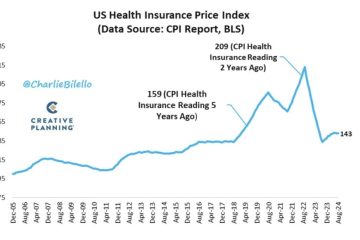The Importance of Minimum Wage Changes in the UK

Introduction
The minimum wage is a critical policy that affects millions of workers across the United Kingdom. It establishes the lowest legal salary that employers can pay, helping to combat poverty and ensure a basic standard of living for employees. As the cost of living continues to rise, discussions surrounding increases in the minimum wage have gained significant attention from policymakers, businesses, and workers alike. Recent changes and proposals in minimum wage legislation are vital for understanding the economic landscape in the UK.
Recent Developments in Minimum Wage
As of April 2023, the UK’s National Living Wage (NLW) increased to £10.42 per hour for workers aged 23 and over. This represents a substantial increase aimed at addressing the rising cost of living and inflation rates, which have put pressure on household finances. The Low Pay Commission, the body responsible for advising the government on minimum wage rates, has recommended that future increases should continue to reflect the economic climate, particularly as inflation has surged to levels not seen in years following the COVID-19 pandemic and the ongoing effects of geopolitical tensions.
In 2022, the government launched a £500 million package aimed at supporting businesses affected by wage increases, ensuring that the burden does not significantly impede economic recovery. Small businesses, in particular, have expressed concerns about how rising minimum wages can impact their operations. Some sectors, such as hospitality and retail, are already operating on thin margins and fear that further increases could lead to job losses.
Implications for Workers and Businesses
The implications of increasing the minimum wage are multifaceted. For workers, a higher minimum wage can mean improved living standards, reducing reliance on social assistance and poverty. Studies indicate that higher wages often lead to increased worker productivity, reduced turnover, and lower recruitment costs as employees feel better compensated for their labour.
On the other hand, businesses must navigate the balance between compensating their workers fairly and maintaining profitability. While some sectors may absorb the costs, others could face significant challenges. The risk of increased prices for goods and services can lead to inflationary pressures, potentially negating the benefits of a wage increase for workers.
Conclusion
The discussions surrounding minimum wage in the UK are pivotal, reflecting broader economic trends and social justice issues. As the landscape evolves, the impact on both workers’ livelihoods and business sustainability will be critical to monitor. Given the volatile economic environment, further changes to the minimum wage will likely be influenced by inflation rates and political priorities. Policymakers must strike a careful balance to ensure a fair wage for workers while supporting businesses through potential economic turbulence.









